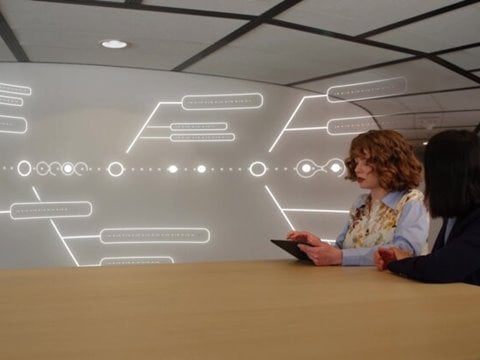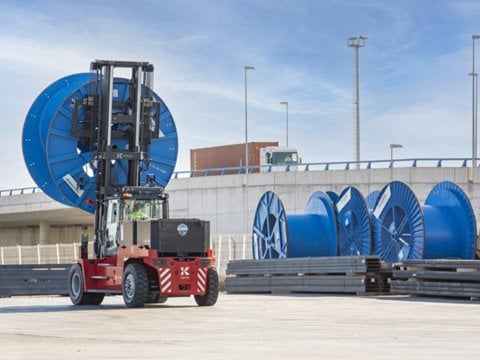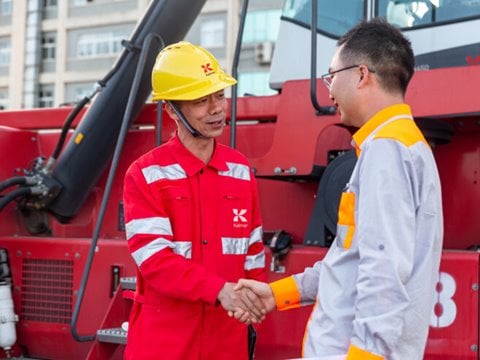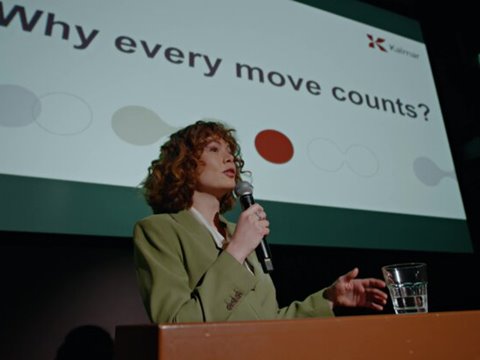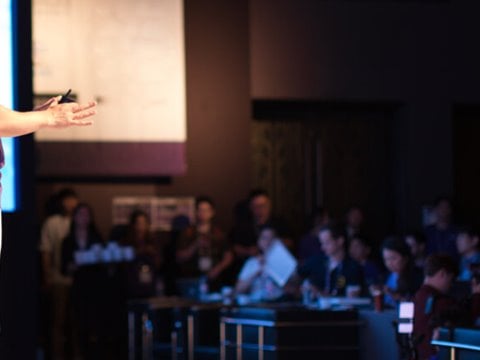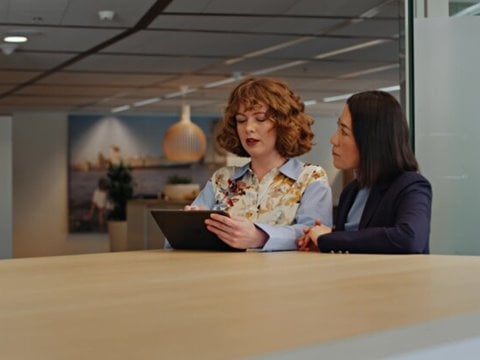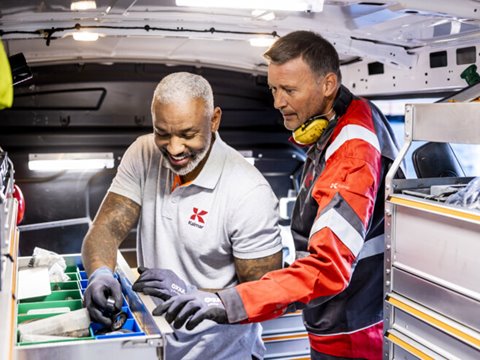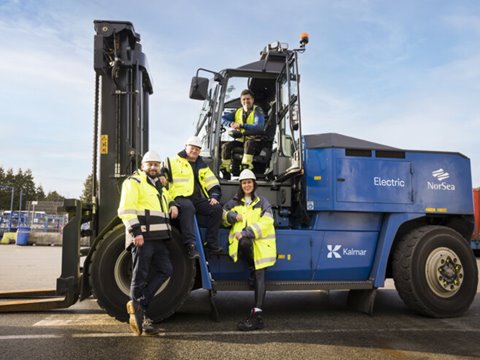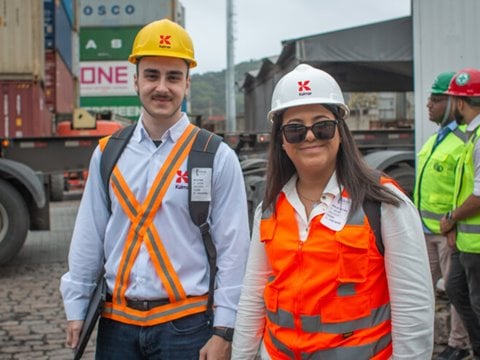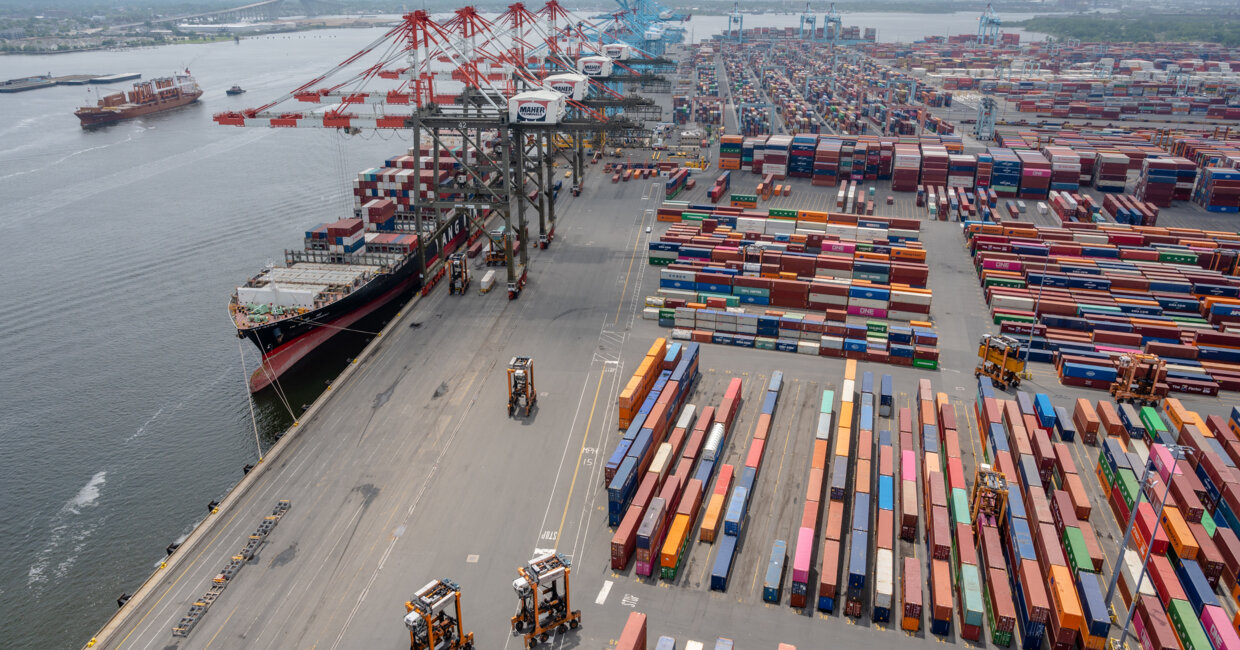
Kalmar Collision Warning System improves safety at Maher Terminals
Maher Terminals LLC is a leading multi-user container terminal operator running North America’s largest marine container terminal in the Port of New York and New Jersey. Maher Terminals also operates the world's largest straddle carrier fleet comprising over 270 Kalmar machines. The company has recently installed the Kalmar Collision Warning System on 36 of its straddle carriers, with a further 68 machines to follow in 2024 and 2025. The goal is to eventually install the system on all machines in the fleet.
The Kalmar Collision Warning System is a robust system for area awareness and active obstacle detection for straddle carriers. It is designed to prevent or reduce the severity of a collision by informing the driver of a potential collision by visual and/or audible alarms. The system has a high ingress protection rating, is shock and vibration resistant and is designed to operate over a wide temperature range.
The Collision Warning System uses sensors fitted to the Kalmar straddle carrier to survey the surrounding area and actively warn the operator of any obstacles in the path of the machine, its spreader or the container being carried. The system allows operators to take immediate corrective action to reduce the risks of accidents, collision and damage to machines or containers, increasing the safety of the employees and saving the terminal time and money while extending the life of the equipment fleet.

Real-world benefits
Maher Terminals collaborated with Kalmar to develop and install two original prototype Collision Warning Systems that were placed into service in September 2022. Implementing the solution on 36 machines in the straddle carrier fleet has already increased the safety of employees at the terminal.
Since installing the system, we have seen fewer straddle-to-straddle, straddle-to-vehicle, and straddle-to-container collisions at our terminal.
"Nothing is more important at Maher Terminals than safety. We asked Kalmar to develop the Collision Warning System to improve employee safety at one of the busiest container terminals in the world," says Louis Allora, Chief Engineer at Maher Terminals LLC. "Since installing the system, we have seen fewer straddle-to-straddle, straddle-to-vehicle, and straddle-to-container collisions at our terminal. Impact-related maintenance costs and reliability have also improved on the straddle carriers that have the system installed."
Multiple safety levels
Feedback from the terminal's team of operators and mechanics has been a key component in the successful development of the system. In addition to warning the driver of any obstacles in the path of the machine, the Kalmar Collision Warning System detects and warns the driver if the spreader or the container being carried are too low when going towards the stack of containers.
"The operators recognize the safety benefit of the system and support it," notes Allora. "Thanks to the system, we have improved the safety of our employees while essentially eliminating damage to spreaders due to forward impact with containers on the straddle carriers with the system installed. Damaged container claims due to not lifting containers high enough when entering rows have also been reduced on these units."
Thanks to the system, we have improved the safety of our employees while essentially eliminating damage to spreaders due to forward impact with containers on the straddle carriers with the system installed.
Maher Terminals plans to continue to retrofit the Kalmar Collision Warning System on all straddle carriers in the existing fleet, and to include the system as a standard safety feature on all new Kalmar straddle carriers purchased. "The benefits of the solution are clear: Better safety for our employees, along with a reduction in damaged equipment, containers, and cargo," concludes Louis Allora.
Related articles
Further reading
Customer case
Subscribe and receive updates in your email
Subscribe